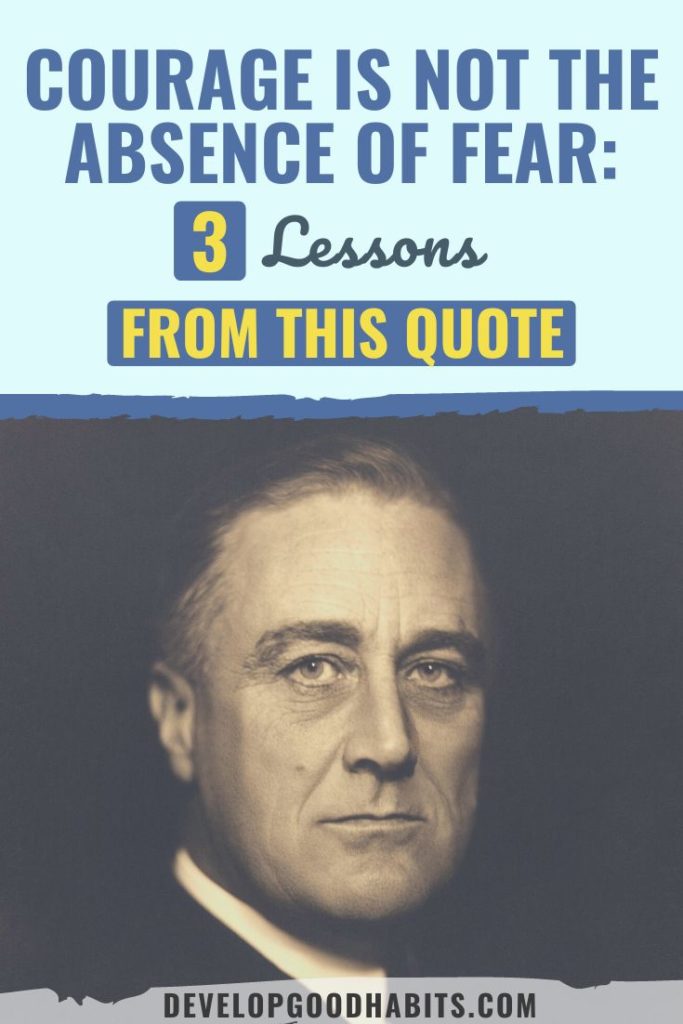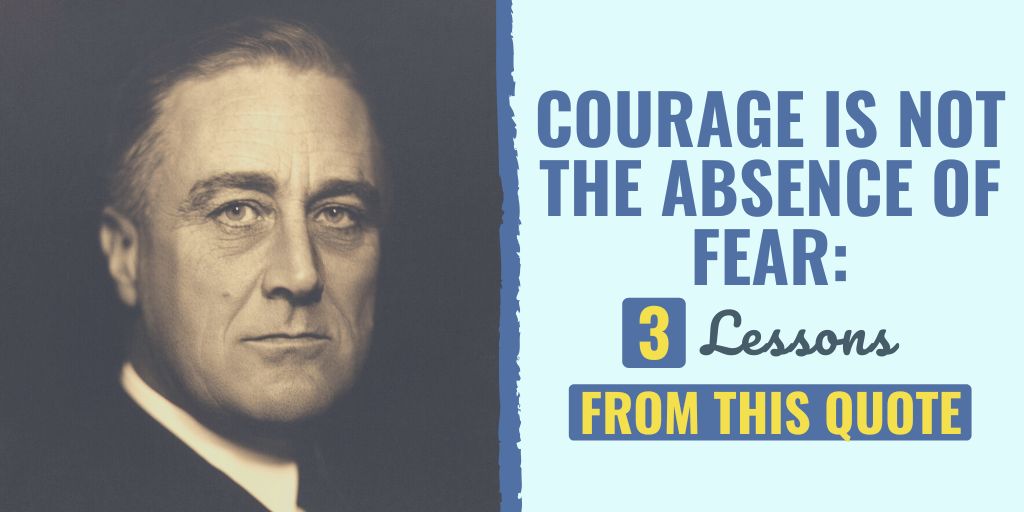There might be affiliate links on this page, which means we get a small commission of anything you buy. As an Amazon Associate we earn from qualifying purchases. Please do your own research before making any online purchase.
When I think of raw courage, my mind always goes back to a story I read many years ago about a boy who was asked to give blood in an emergency to his sister, as he was the only known potential donor with her blood type. The boy misunderstood and thought the doctor and his family were asking him to give all of his blood to his sister, meaning he would have to give his life in order for his sister to live. The boy agreed to the donation and quietly asked his mother how long it would take for him to die as the nurse was hooking him up to an IV.
But it turns out this story is fake.
However, it doesn’t take long to think of another great example of courage–the New York City firefighters who responded to the World Trade Center on 9/11. The professionals who tossed fear aside to enter the burning buildings to save the lives of others–this is an undeniable example from our era that will not soon be forgotten.
But what made this such a courageous act?
According to a quote by Franklin D. Roosevelt, “Courage is not the absence of fear, but rather the assessment that something else is more important than fear.”
The amount of courage it takes to do something can be measured by the amount of fear one must put aside in order to act.
In this article, we will look at 3 lessons that can be taken away from this quote. But first, let’s look at the origin of this quote and explore the concepts of courage and fear a bit more.
The Origin
As the only president in history who has been elected into office four times, Franklin D. Roosevelt led the U.S. through two of the most notable dilemmas of the 20th century, the Great Depression and World War II. In doing so, he often made speeches to the country, many of which were remembered for their optimistic message. Snippets from his speeches have gone down in history as famous quotes, teaching valuable age-old lessons to our modern society.
The quote at hand aims to define courage as it relates to fear. The relationship between courage and fear is far from being mutually exclusive, as many might believe. In fact, it is anything but this. And while our minds may go to extreme examples when we think about courage, the feat of courage over fear is relevant to those of us who aren’t running into burning buildings. We see this in our everyday lives, so let’s break it down.
[Want some inspiration] Check out 63 memorable quotes from Franklin Roosevelt's wife, Eleanor]
What Is Fear?
Fear is what we feel when we sense a threat. Whether that threat is mental, physical, major, minor, real, or perceived, when this emotion arises, it can provoke underlying mental health conditions such as anxiety, panic, and phobias.
While fear is something we try to avoid, it actually plays a protective role in our lives. Fear helps us recognize and avoid potentially detrimental threats, pain, or harm. It also ignites our fight or flight response, prompting us to take appropriate action if needed for survival.
Everyone fears something. This is something you’re born with. Think of babies crying when they’re away from their parents or a child fearing that monster in their closet. This is a primal emotion.
A lot of fears are tangible, such as bugs and heights, but people also have psychological fears, like failing or being alone. You can probably easily list off some of your fears, but others may be a bit more difficult to recognize. Either way, it’s important to acknowledge your fears to be able to overcome them.
What Is Courage?
On the other hand, courage shows up in instances when you feel fear, but it pushes you to act in spite of being scared. Courage doesn’t eliminate fear, it just makes your fear less limiting. It puts fear on the back burner. With courage, you’re fearful, but that feeling doesn’t stop you.
Unlike the primal emotion of fear, courage is a willful thought process that allows you to overcome fear. To gain courage, you have to face your fears and come out on the other side enough times to convince yourself that you shouldn’t hold back just because you’re afraid. If you do this enough with the smaller things that scare you, you’ll be better equipped to conquer bigger things in life that provoke deeper fears.
In summary, to quote Sir Winston Churchill, “Fear is a reaction. Courage is a decision.”
Now that we know about the two key words in the quote, “Courage is not the absence of fear,” we can delve into the lessons that can be derived from this powerful phrase.
Courage is Not the Absence of Fear: 3 Lessons from This Quote
Lesson #1: You have to have fear to have courage.
If courage is not the absence of fear, that means that fear has to be present for courage to be a factor as well. If you’re not afraid of doing something that others may be scared of, it doesn’t mean you’re braver than them. It just means that you don’t have the same fears.
For example, a lot of people really hate spiders. However, there are those select few people who “embrace the eight” and enjoy working with spiders. If someone like this was dared to hold a spider, it wouldn’t take a lot of courage for them to do so, as they wouldn’t be afraid. There wouldn’t be an emotional barrier between the person and the act of picking up the spider.
However, if someone who is very scared of spiders was dared to hold one, it would require them to dig up a lot of courage to overcome that fear.
Lesson #2: It’s important to acknowledge your fears.
Sometimes when we are afraid of things, we don’t want to admit it. You may be fearful of going up and starting a conversation with your crush, or signing up for a marathon–because then, the idea of training is really real. Whether you can’t admit your fears to yourself or you just don’t want to talk about them with other people, suppressing fear or trying to deny it will not only ensure that feeling sticks around, it will also magnify it.

If you ignore fear, it won’t go away. You have to not only address it, but work to mentally overcome it. You can do this alone by working through your fears in your mind, considering the possible root of the fear and the potential outcome that you’re afraid of, or you can talk it over with a friend to get an outside perspective. Either way, you need to acknowledge the existence of these feelings if you want to overcome them.
Lesson #3: Being courageous often requires selflessness.
If you had a choice to avoid discomfort or to embrace it, your first thought would probably be to avoid it. We don’t tolerate discomfort too much these days (which we all know leads to procrastination). Going back to the definition of fear, this emotion is provoked by a looming threat to one’s own wellbeing. But seeing as we don’t stick around when we’re uncomfortable, why would anyone act on something they’re afraid of?
Well, if you read the quote in its entirety, it notes that something else is deemed to be more important than the potential consequence of that threat. Something else is deemed to be more important than one’s own feelings of comfort.
It doesn’t matter whether you’re facing something that most people would be afraid of or not–if you are afraid of it, you have to be selfless to put those fears aside to achieve an end result that you recognize is more important than your own discomfort.
The little boy who decided his sister’s life was more important than his own fear of dying, or the New York City firefighters who assessed that their fear of putting themselves in the exact situation that so many were trying so desperately to escape was less important than the lives of these strangers–these are true examples of courage that exemplify selflessness, as many courageous acts do.
Final Thoughts on Fear and Courage
Having the courage to overcome one’s fears is a defining quality that allows some people to stand apart from the crowd. Had many historical figures chosen to limit their actions because of their fears, the world would be far from where it is today. Having the ability to overcome your fears is a trait that will set you apart from others.
To develop the ability to look beyond fear isn’t easy–it takes practice. (For some inspiration, here are our favorite movies about courage and our top picks for the best songs about bravery.) And while there are many opportunities in life to practice this, all of them take time and require patience before you will see results. But, if you can remember that courage is not the absence of fear, you will have taken the first step to face your fears and demonstrate your bravery to yourself and others.
Finally, if you want to take your goal-setting efforts to the next level, check out this FREE printable worksheet and a step-by-step process that will help you set effective SMART goals.

Connie Mathers is a professional editor and freelance writer. She holds a Bachelor's Degree in Marketing and a Master’s Degree in Social Work. When she is not writing, Connie is either spending time with her daughter and two dogs, running, or working at her full-time job as a social worker in Richmond, VA.


